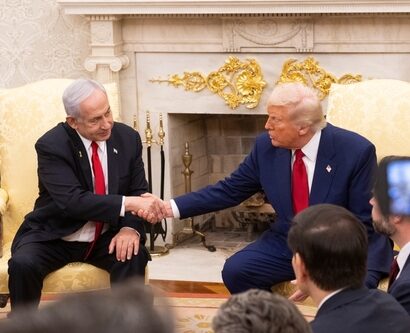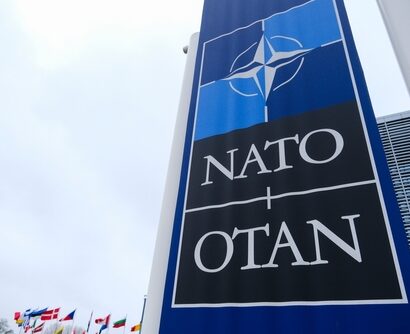Abstract: 11 September 2001 – 31 August 2021: Twenty tormenting years for a country lacking peace, democracy and human rights. At the end of August 2021, with the United States and, consequently, their allies withdrawal from Afghanistan, what for many is the failure of the West and its international institutions, was accomplished. The essay attempts to retrace the fundamental stages that led the Taliban to conquer the entire country without great difficulty.
Bottom-line-front-up: NATO’s ‘Resolute Support’ mission, which began in late 2014 and was designed and launched to support Afghan military and police institutions, proved a failure in the 24 hours it took for the capital to fall into the hands of Islamic militiamen. The training of Afghan state forces proved to be useless and ineffective, with the central authorities – first and foremost President Ashraf Ghani – not resisting the Taliban advance.
Problem statement: Why did the United States withdraw its troops from such a democratically unstable country? What was NATO’s role, failure or maximum effort? What should Europe do about the Afghan crisis?
So what?: The withdrawal of US troops should not have been carried out so hastily, first through the agreement made by the Trump administration and then confirmed by President Biden. Despite having a democratic government, Afghanistan was highly unstable in many respects (social, economic and military), and the withdrawal of the American army brought the Taliban to the fore, a force that had never defeated and was eager to regain the country.

Afghanistan: Goodbye United States!
Everything that has been happening in Afghanistan since the beginning of August[1] is not surprising: it outrages on a humanitarian and human rights level, it leads to questions being asked about the role and reliability of the United States and Europe as partners.
The first new circumstance concerns the United States and its interests, which have evolved over time. The intervention in Afghanistan is the cause of another era: after 11 September, it was necessary to eliminate the jihadist sanctuaries and replace the Taliban regime. More generally, it was a matter of imposing liberal democracy, securing energy resources, and defeating terrorism in the enlarged Middle East region. Today, the dreams of salvific regime change and the ambitions of nation-building have vanished, the perception of the jihadist threat in and to an America that considers itself protected by its ‘insularity’ has diminished. The security needs of the United States are elsewhere: first and foremost, it is about the competition with China. In the enlarged Middle East, for Washington, the strategic balance must stand on its own, with the American institutions acting as a support at best. If we add to this the risks of domestic supremacism and the growing entropy of American public opinion, Joe Biden’s decisions on Afghanistan – similar to those of Barack Obama and Donald Trump – are quite obvious: in fact, an America that, for better or worse, decides based on its own interests.
Today, the dreams of salvific regime change and the ambitions of nation-building have vanished, the perception of the jihadist threat in and to an America that considers itself protected by its ‘insularity’ has diminished.
A New Player in the Middle East Region?
A second factor concerns the role of China and the regional geopolitical context.[2] The exit of the United States from Afghanistan may create a vacuum in favour of new international rivals and bring the risk of a new jihadist state. China, first of all, is interested in increasing its influence. Despite the fact that Beijing’s difficulties in dealing with a Taliban regime sensitive to the Islamist demands of the Uighurs in Chinese Xinjiang could complicate organic alliances with Kabul. The Chinese government fears instability on its borders: Beijing’s institutions will try to mitigate them bilaterally with soft power — such as diplomatic understandings, treaties or friendly trade agreements between the two parties —, international recognition and structural investments, and seek new power balances with other regional players.
While Washington is grappling with the stark reality of the loss of Kabul and Afghanistan, the governments of Europe are no less disconcerted at the thought of what will happen in the coming months. On this side of the Atlantic, many questions are stirring in the capitals of the European Union: will the return of the Taliban encourage new hotbeds of instability on the doorstep of the “Old Continent”? How can we contain, or welcome, the flows of refugees that may arrive from Central Asia? Furthermore, after what has happened, will Brussels be just as ready to support future US foreign policy initiatives? There is no denying that the European institutions were caught off guard by the American decision to demobilise troops so quickly, showing a complete lack of understanding of the vulnerability of the Afghan state. A third circumstance lies in the strategic need to preserve a role for the West in Afghanistan. A key role could lie with Europe, taking the initiative and setting a common agenda.[3]
There is no denying that the European institutions were caught off guard by the American decision to demobilise troops so quickly, showing a complete lack of understanding of the vulnerability of the Afghan state.
The United States, China, Russia, the European Union and other regional actors (India, Pakistan, Iran, Turkey and Central Asian countries) do, after all, share an interest in avoiding Afghan destabilisation, ensuring against the jihadist risk, managing the uncontrolled flow of refugees, containing drug trafficking and starting reconstruction. In order to achieve these countless goals, the EU could take steps to promote a so-called ‘international working group’ comprising the states concerned. It would serve to relate more compactly with Taliban Kabul and contain regional escapades and international selfishness.
In the last few days, the EU’s Representative for Foreign and Security Policy, Josep Borrell[4], has also spoken on this subject, stating that it is necessary to initiate a series of contacts with neighbouring countries to limit the risks of terrorism. It is worth remembering that the extraordinary G20 summit[5] convened by Italian Prime Minister, Mario Draghi, goes precisely in this direction: a meeting of Heads of State and Government of the world’s twenty most powerful economic powers to reach a commitment that binds not only European and Western forces, but also and above all countries like China, Russia, Saudi Arabia and Turkey that have interests and influence on the self-proclaimed Islamic State.
The Faltering of International Institutions: NATO
Much has been said in the past month about NATO and the situation in Afghanistan. It is worth remembering that the Atlantic Alliance began its operation in Afghanistan on 11 August 2003.
Since the withdrawal of Western forces began, with the gradual advance of the Taliban, the Atlantic alliance has been accused of failing in its mission begun 20 years ago. NATO itself echoes President Joe Biden in defending its withdrawal, arguing that the purpose of the mission, which began after the al-Qaeda attacks of 11 September 2001, was to prevent a repeat of terrorist attacks against the United States and its allies. As the statement of Friday 20 August claims, an objective has been achieved, preventing Afghanistan from becoming a ‘safe haven’ for terrorist organisations (al-Qaeda and the Islamic State) again. However, NATO’s ‘Resolute Support’ mission, which began in late 2014 and was designed and launched to support Afghan military and police institutions, proved a failure in the 24 hours it took for the capital to fall into the hands of Islamic militiamen. The training of Afghan state forces proved to be useless and ineffective, with the central authorities – first and foremost President Ashraf Ghani – not resisting the Taliban advance. For NATO, Afghanistan risks becoming a watershed for its history: an enormous expenditure of money (over 2 thousand billion dollars the total cost of the war in Afghanistan) which has not contributed to a real stabilization of the country. In addition, as far as international security is concerned concerning the Taliban’s seizure of Kabul, there is the problem of the arsenals of US weapons, ammunition and other military equipment that – after the defeat of the Afghan security forces – have passed into the hands of the Taliban.[6] According to White House National Security Adviser Jake Sullivan, the militiamen appear to be armed with M4 carbines and M16 rifles instead of the Russian AK-47s assault rifles used to advance into the country.
As the statement of Friday 20 August claims, an objective has been achieved, preventing Afghanistan from becoming a ‘safe haven’ for terrorist organisations again.
This is another blow to the image of the White House and a cause for alarm among Europeans: the American arsenal in the hands of the Taliban[7] could feed a regional arms market that could consequently end up in the hands of terrorist groups and insurgents.
Edoardo Tagliabue, student of International Relations at the University of Milan, Italy. Strong interest in geopolitics and military affairs with specific areas of interest such as North Africa and the Middle East, Asia and the Pacific. The views contained in this article are the author’s alone and do not represent the views of “The Defence Horizon Journal”.
[1] “Statement by NATO Foreign Ministers on Afghanistan: NATO allies pushing to extend Kabul evacuation deadline,” Al Jazeera, August 20, 2021, https://www.aljazeera.com/news/2021/8/20/afghanistan-nato-allies-pushing-to-extend-kabul-evacuation-deadline.
[2] Afghan visa applicants told to stay away from Kabul airport as US races to meet exit deadline,” CNN, August 23, 2021, https://edition.cnn.com/2021/08/23/asia/kabul-airport-afghanistan-intl-hnk/index.html.
[3] “UK evacuation from Afghanistan ‘down to hours not weeks,” The Guardian, August 23, 2021, https://www.theguardian.com/world/2021/aug/23/uk-taliban-extend-kabul-exit-date-deadline-western-troops-forces-americans-britain-kabul.
[4] “Borrell at the EU Parliament: ‘The Afghan crisis is a catastrophe, the worst after the Crimea’,” Euronews, August 19, 2021, https://it.euronews.com/2021/08/19/borrell-al-parlamento-ue-la-crisi-afghana-e-una-catastrofe-la-peggiore-dopo-quella-della-c.
[5] “Russia’s Putin, Italy’s Draghi and France’s Macron discuss Afghanistan,” Reuters, August 19, 2021, https://www.reuters.com/world/russias-putin-italys-draghi-discuss-afghanistan-ria-2021-08-19/.
[6] Stefano Stefanini, “Biden in Europe: Stress on transatlantic relations,” ISPI, June 14, 2021, https://www.ispionline.it/it/pubblicazione/biden-europa-stress-test-le-relazioni-transatlantiche-30835.
[7] Paul McEary and Lee Hudson, “U.S.-made weapons seized by Taliban could lead to regional arms bazaar,” Politico, August 19, 2021, https://www.politico.com/news/2021/08/19/us-weapons-seized-taliban-506313.






